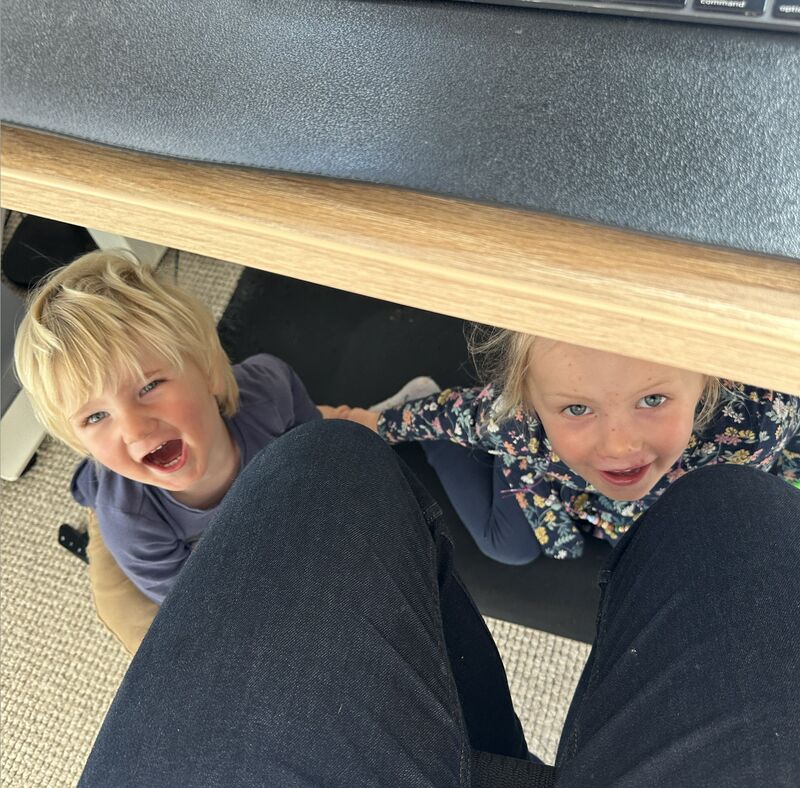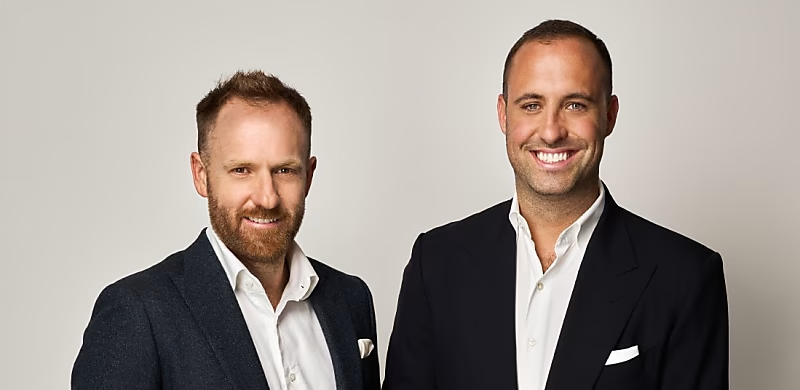Mortgage brokers, who are mostly free from the corporate structures that govern much of the financial services sector, are in a unique position to benefit from the choice the changing landscape has granted them.
Chris Bates (pictured above), director of online brokerage Blusk, said mortgage broking was a “perfect fit” for those working from home full time because it allowed them more flexibility.
“I’m sure many teams and businesses have realised that thanks to technology and client perception, why shouldn’t a business focus on a true win where employees don’t have to give up too much to fit outdated models,” Bates said.
Blusk (formerly known as Wealthful) has a remote team spanning across Australia, from Melbourne, Sydney, and Brisbane to Griffith, and even overseas.
“We have 11 young ones [collectively] at our homes, and many of our team members hope to have more,” Bates said. “Each day, we celebrate our children’s moments, and parenting fails, and no matter what and when help is needed, the family will come first.”
Big banks battle unions over working from home
A world away in the same industry, Australia’s big four banks are at different levels of discussions over how to mandate WFH for their tens of thousands of employees.
NAB has moved the furthest towards WFH rights, having reached a deal with the Finance Sector Union (FSU) to provide private sector staff legal protection for remote work.
Yet to be voted on by the bank’s 32,000-strong workforce, the deal struck on July 14 would mean NAB must support WFH arrangements and will see the introduction of a disputes process if WFH is denied.
This is a reversal of the bank’s earlier position in May, which ordered its senior staff back full-time and other staff back for two or three days.
However, Commonwealth Bank of Australia (CBA) has mandated its staff to return to the office 50% of the time in a month from the beginning of this week.
While the FSU is fighting the mandate, CBA has stuck to its flexible work model, claiming nearly 70% of its 49,000 staff currently work at or close to the required in-office attendance.
Elsewhere, Westpac’s CEO expressed his opinion on the topic in an email to company staff in May.
“We continue to run a hybrid working model, where you are expected to come into the office two or three days a week,” Peter King said in the email. “Your team days are an opportunity to work together and collaborate in person.”
The sentiments on team connection and productivity were echoed by Shayne Elliott, the CEO of ANZ, which is currently still in negotiations with the workers’ union.
“Working in the office assists with efficiencies and productivity, creates opportunities for informal learning and development, and helps establish and maintain interpersonal relationships,” Elliott said in June, according to an AFR article.
However, Bates said that productivity and connection was a choice whether you worked from the office or at home.
“Recently, I have loved reading stories where employees with unions are fighting back and believe that WFH is a right that workers should demand and fight for in some form if they can genuinely do their work away from work,” Bates said.
“Firms that can adapt to their version of a hybrid model should. We should not force society to return to the old one that marginalised families, longer commutes, and under-prioritised one’s wellbeing.”
The choice
In 2020, the working world was catapulted into WFH as decision-makers were left with no safe alternative.
Now the fight is on to decide whether WFH should have ever been a choice. But still, it’s on the decision-makers at the major banks to decide on the working conditions of thousands of employees.
With more than 60% of brokerages operating as sole or dual operators, many in the broking industry have that choice.
Bates said he was thankful to be part of that cohort.

Image of Chris Bates sharing a moment with his children while working from home
“Moments like yesterday, and my son just turned 20 months this week, the same age as our daughter was when he was born, make me feel so grateful for how the world shifted and the opportunity I have had,” Bates said.
“In the last few years, the quote that the days are long, but the years are short constantly reverberates through my mind. For both the mother and father, being around in these unforgettable early years in the past has been a privilege for a few, but as we know, COVID woke society up to a better model.
“How many chances do parents get to be there for their kids and partners in these challenging but significant first few years?”
What do you think of working from home? Comment below.















